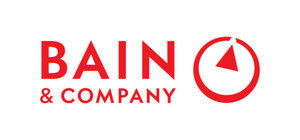NEW YORK, April 22, 2020 /PRNewswire/ -- Sustainability will transform the nature of business by magnitudes comparable to the digital revolution's disruption. The shift will upend industries, shift profit pools, challenge areas of historically high returns and, ultimately, open up billion-dollar opportunities in new areas. No industry will be immune.
Most executives know this and support sustainability objectives. However, with a success rate of only 4 percent for sustainability initiatives worldwide, many leaders also know they need to be doing substantially more if they want to be leaders in the space. Otherwise, they risk being left behind. These are the findings from Sustainability is the Next Digital, a new report from Bain & Company.
"The fact that sustainability should be atop the list of business priorities is not new for most executives," said Jenny Davis-Peccoud, who co-leads the firm's global Sustainability and Corporate Responsibility practice. "What is new is the magnitude of the changes they can expect. Sustainability is going to be more than just a checkbox KPI moving forward. It will upend industries and impact everything from supply chains to procurement to funding to talent retention. We feel very comfortable equating the changes as a result of sustainability to those spurred by the digital revolution."
Helping to drive this shift is the expanding definition of sustainability. The term now encompasses a broader range of environmental threats as well as social, economic and governance challenges—everything from product health impacts to gender rights to food equality. Further, the negative consequences of corporate activity are increasingly measured, visible and scrutinized. Consumers, government, employees and investors are paying far more attention and taking far more action to register their dissatisfaction with organizations that disregard sustainability.
These actions will fuel massive change across industries. Government regulation is a credible scenario and yet too few companies factor the potential costs of strict regulations into their long-term visions. For example, Bain & Company estimates that with potential regulatory measures from sugar taxes to carbon prices a typical soft drink company could lose up to 22 percent of its margins. Meanwhile, massive opportunities will open up as consumer preferences and profit pools shift: according to Bain & Company analysis of data from Barclay's and Grand View Research, plant-based meat could be a $140 billion business by the end of this decade and the retail nutrition and wellness market could grow to $50 billion by 2025.
To stay ahead of the sustainability curve, companies will need to find new engines of growth. Bain & Company's report identifies four opportunities that companies should seize upon to retain their competitive advantage:
- Make strategic choices. When companies look into the future, many will see that their only option for becoming sustainable is to make a drastic shift and adopt the "disrupt or be disrupted" mindset that spurred so many companies to embark on digital transformations. Companies will need to make changes that fundamentally affect where to play and how to win.
- Rethink and redesign product offerings. Just as digital changed the product landscape from new music formats to new methods of news delivery, sustainability has opened the door for new products that support reducing waste, minimizing carbon emissions and enhancing wellness. For consumer products companies, the sustainability revolution is an opportunity for developments on everything from packaging to formulation.
- Reinvent operating strategies. Companies can closely examine their operations, from their procurement to their supply chains, to make critical choices about where to invest, reduce spend, or shift focus. Even digital is being disrupted by sustainability in this area: data centers consume 2 percent of global electricity, an amount that is on target to grow to 8 percent by 2030, leaving cloud service providers grappling with ways to drive down power consumption and the resulting carbon emissions.
- Develop innovative partnerships to support symbiotic, sustainable growth. Sustainability comes with an urgent imperative. More companies will join forces with external partners in an accelerated effort to develop the capabilities now required to address sustainability issues. This may be with nongovernmental organizations, with industry groups, with each other—sometimes forming sustainability ecosystems. From forming industry associations to drive widespread change to teaming together to increase package recycling, many companies will find that it is more efficient and sustainable to partner together.
"As sustainability expands, accelerates and disrupts, it is forcing companies across all industries to look at themselves with unwavering honesty – and rapidly prepare to deliver a future they never could have imagined," said Jean-Charles van den Branden, co leader of Bain & Company's global Sustainability and Corporate Responsibility practice. "Winning companies consider all of their options from both a 'future back' and 'today forward' perspective, looking at the disruptive trends to be able to challenge your thinking, set your sights higher and maybe make some more radical moves. Today forward allows you to see what you can do now to keep making progress against current trends. This combination gets companies on the right track."
Editor's Note: To arrange an interview, contact Katie Ware at [email protected] or +1 646 562 8107
About Bain & Company
Bain & Company is the management consulting firm that the world's business leaders come to when they want results. Bain advises clients on private equity, mergers and acquisitions, operations excellence, consumer products and retail, marketing, digital transformation and strategy, technology, and advanced analytics, developing practical insights that clients act on and transferring skills that make change stick. The firm aligns its incentives with clients by linking its fees to their results. Bain clients have outperformed the stock market 4 to 1. Founded in 1973, Bain has 57 offices in 36 countries, and its deep expertise and client roster cross every industry and economic sector. For more information visit: www.bain.com. Follow us on Twitter @BainAlerts.
Media Contact:
Katie Ware
Bain & Company
Tel: +1 646 562 8107
[email protected]
SOURCE Bain & Company

Related Links
WANT YOUR COMPANY'S NEWS FEATURED ON PRNEWSWIRE.COM?
Newsrooms &
Influencers
Digital Media
Outlets
Journalists
Opted In




Share this article